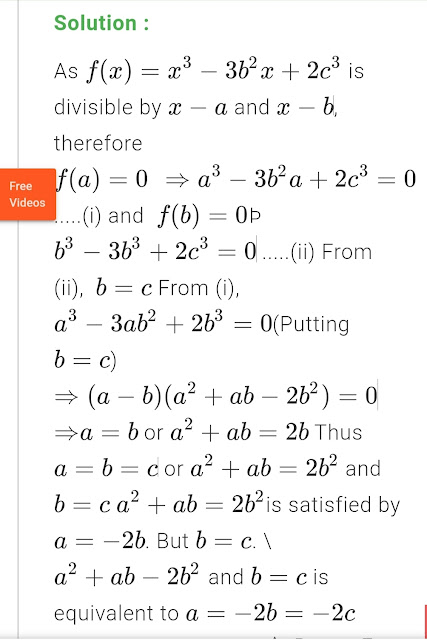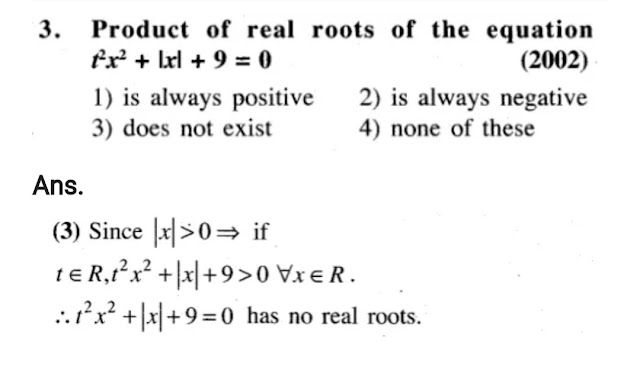Download the hole books
Download theory of equation
Important question for jee mains 2020


Important question for jee mains 2020
solution


some other important questions
Foundamental Theorem of Algebra ( non real coiffcient of polynomials)
The fundamental theorem states that every non-constant single variable polynomial with complex coefficients has at least one complex roo
Thefundamental theorem of algebra states that every non-constant, single- variable polynomial with complex coefficients has at least one complex root. This includes polynomials with real coefficients, since every real number is a complex number with zero as its coefficient.
The fundamental theorem is also stated as follows: every non-zero, single-variable, degree n
polynomial withcomplex coefficients has, counted with multiplicity, exactly n roots. The equivalence of the two statements can be proven through the use of successive polynomial division.:
multiplicity the number of values for which a given condition holds
Some polynomials with real coefficients, like have no real zeros. As it turns out, every polynomial with a complex coefficient has a complex zero. Every polynomial of odd degree with real coefficients has a real zero
The Complex Conjugate Root Theorem
The complex conjugate root theorem says that if a complex number is a zero of a polynomial with real coefficients, then its complex conjugate is also a zero of this polynomial ( condition is that all coiffcient of polynomial are real
Now let our real polynomial admits a root with . By dividing with the real polynomial, we obtain another real polynomial, for which the complex conjugate root theorem again applies. In this way, we see that the total multiplicity of non-real complex roots of a polynomial with real coefficients must always be even.
This last remark, together with the alternative statement of the fundamental theorem of algebra, tells us that the parity of the real roots (counted with multiplicity) of a polynomial with real coefficients must be the same as the parity of the degree of said polynomial. Therefore, a polynomial of even degree admits an even number of real roots, and a polynomial of odd degree admits an odd number of real roots (counted with multiplicity). In particular, every polynomial of odd degree with real coefficients admits at least one real root.
then one example comes that if we take an example of a polynomial with non-real coefficients, but with real roots.
A trivial example to provide is , which has non-real coefficients but a real root . However, I feel that this is a ' cheat example' if that makes sense because the coefficients just cancel out anyway Is there a 'less cheating' example out there
write your comment in commentbox
write your comment in commentbox

































































